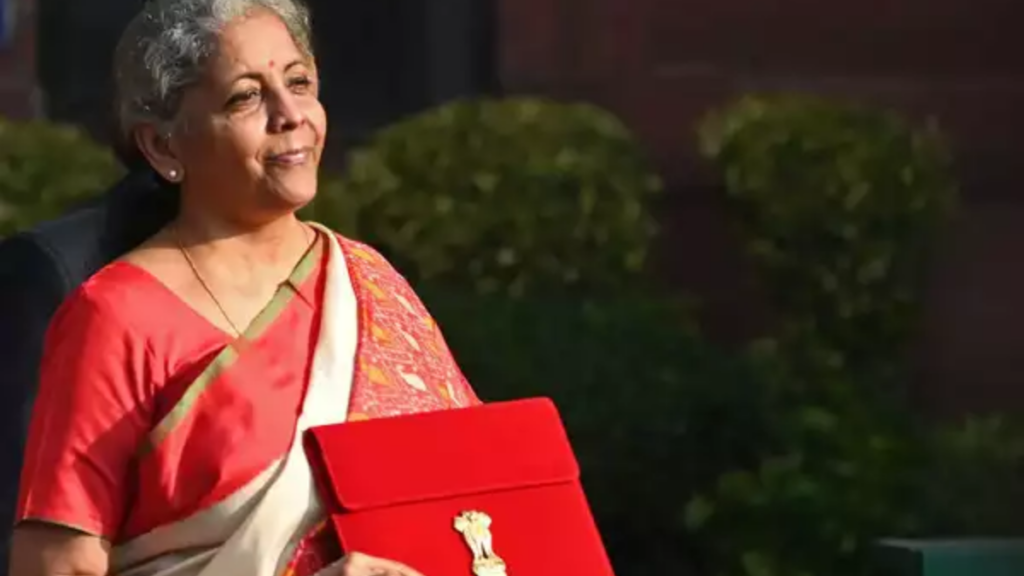Union Finance Minister Nirmala Sitharaman is set to present the 2025-26 Union Budget on February 1, 2025. While corporations and industrial stakeholders are keenly awaiting reforms, senior citizens also harbor high expectations, particularly regarding financial relief and healthcare. The elderly population, which often struggles with rising medical expenses, hopes the government will introduce targeted measures to address their unique needs.
Current Tax Benefits for Senior Citizens
1. Section 80D: Increased Deductions for Medical Insurance
Senior citizens are entitled to higher deductions on health insurance premiums. Under Section 80D of the Income Tax Act, individuals aged 60 and above can claim up to ₹50,000 annually for health insurance premiums, compared to ₹25,000 for younger taxpayers.
2. Section 207: No Advance Tax Requirement
Seniors not earning income from “Profits and Gains of Business or Profession” are exempt from paying advance tax, easing the financial compliance burden.
3. Section 194P: Filing Exemptions for Super Seniors
Individuals aged 75 and above, whose income is limited to pension and interest from the same bank, are exempt from filing income tax returns.
4. Higher Exemption Limit in the Old Tax Regime
Under the old tax regime, senior citizens enjoy a basic exemption limit of ₹3 lakh, compared to ₹2.5 lakh for younger individuals, providing additional financial relief.
Why Healthcare Costs are a Pressing Concern
Hanut Mehta, CEO and Co-Founder of Bimapay Finsure, highlighted that healthcare inflation disproportionately affects senior citizens. Limited income during retirement, coupled with rising medical costs, often leads to financial strain. With seniors facing chronic illnesses and long-term care needs, the current provisions fall short of addressing their comprehensive healthcare challenges.
Potential Measures in Budget 2025
The upcoming budget could introduce several reforms to improve financial accessibility to health insurance for senior citizens:
Preventive Care Discounts
Encouraging preventive health measures like regular screenings, vaccinations, and wellness programs could reduce insurance premiums. Budget 2025 may incentivize insurers to offer premium discounts for seniors actively engaging in preventive care.
Enhanced Deductibles and Co-Pay Options
Opting for higher deductibles or co-pay percentages could lower premium costs. However, policymakers may consider capping out-of-pocket expenses for seniors to ensure affordability in emergencies.
Subsidized Senior-Specific Health Insurance Plans
The government could introduce or expand age-specific health insurance schemes that offer cashless treatment, reduced premiums, and chronic illness coverage. These programs would be especially beneficial for those who do not qualify for employer-provided health insurance.
Portability and Consolidation of Policies
Porting existing health insurance policies to senior-specific plans could address coverage gaps. Additionally, consolidating multiple policies under a single umbrella could reduce redundant costs and streamline benefits.
Inclusion in Family Floater Policies
Family floater policies could be restructured to offer better inclusion for seniors. These plans allow shared premiums among family members, reducing individual costs for elderly members.
Additional Expectations from Budget 2025
1. Expanding Ayushman Bharat for Seniors
While the Ayushman Bharat scheme covers citizens aged 70 and above, extending it to individuals aged 60 and above could provide broader healthcare access.
2. Tax-Free Preventive Healthcare Packages
Introducing tax-free packages for diagnostic tests, mental health programs, and physical therapy could promote holistic health for seniors.
3. Deduction for Home Healthcare Services
Home healthcare is increasingly popular among seniors. Allowing tax deductions for home care expenses could offer significant financial relief.
Benefits of Health Insurance Reforms for Seniors
Financial Security
Enhanced tax deductions and subsidized plans would alleviate the financial strain of medical expenses, ensuring seniors can focus on their health without worrying about costs.
Preventive Health Focus
Incentivizing preventive care would encourage seniors to prioritize regular check-ups, leading to early detection and reduced long-term healthcare expenses.
Simplified Policy Management
Consolidated and portable policies would streamline insurance management, making it easier for seniors to access the care they need.
FAQs
What tax benefits do senior citizens currently have for health insurance?
Senior citizens can claim up to ₹50,000 annually under Section 80D for health insurance premiums. They are also exempt from advance tax if they have no business income and enjoy a higher basic exemption limit of ₹3 lakh under the old tax regime.
Will Budget 2025 introduce new healthcare benefits for seniors?
While no official announcement has been made, experts anticipate reforms such as expanded deductions, subsidized senior-specific insurance plans, and enhanced preventive care incentives.
How does the Ayushman Bharat scheme benefit seniors?
The Ayushman Bharat scheme covers seniors aged 70 and above, offering cashless treatment for eligible beneficiaries. Expanding this coverage to individuals aged 60 and above could provide broader access to healthcare.
What role do family floater policies play in senior healthcare?
Family floater policies spread the insurance premium across all family members, reducing individual costs for seniors while ensuring comprehensive coverage.
Click here to know more.

